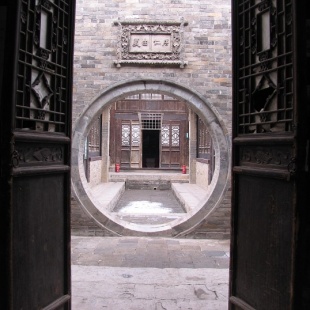Mansion restored to honor a hero's life

Gao Xiaoming never expected that the earthquake-hit mansion his father bought 18 years ago could turn into an anti-opium hero's memorial hall attracting millions of visitors.
The Lin Zexu Memorial Hall is situated in Pucheng county, Northwest China's Shaanxi province. Located 84 kilometers north of Emperor Qinshihuang's Mausoleum Site Museum, known for the famous terracotta warriors, the memorial hall was renovated from a black-brick mansion with a history of more than 180 years.
Lin Zexu, a Qing Dynasty (1644-1911) official who led the fight against opium smuggling, stayed there for around three months in 1847. During his stay, the anti-opium hero created a series of calligraphy and painting works, many of which are well preserved.
"However, the old residence was seriously damaged by earthquakes and its owner planned to demolish it," says Gao. "So we bought it."
The house cost Gao's family 200,000 yuan ($30,000) in 2002 and they started to refurbish the old, dilapidated house into a museum in Lin's memory.
It was a long journey. To restore the residence's utmost originality, his father Gao Qisheng visited many neighboring counties and villages to collect building materials used in the same historical period as the house.
"The lotus flower paintings carved into roof beams were badly damaged. After the renovation, every painting is different from the other, which is very unusual," Gao Xiaoming says.
To enrich the collections, the family collected many historical documents on Lin's political and anti-opium activities. Vivid sculptures and exhibits were also carved and collected for display.
It took the family five years and more than 2 million yuan to complete the restoration work. In 2007, the Lin Zexu Memorial Hall, covering an area of 1,050 square meters, opened to the public.
"As one of the five memorial halls of Lin in China, ours is the only privately run one. We're very proud of it," Gao Xiaoming says.
Since its opening, the memorial hall saw more than 1 million visitors from across the country. As this year marks Lin's 150th death anniversary, the memorial hall has seen a surging number of tourists.
"I did a good job," Gao Xiaoming says. "I am glad to see so many visitors coming here to learn about the hero and the history of that period."
Xinhua





































